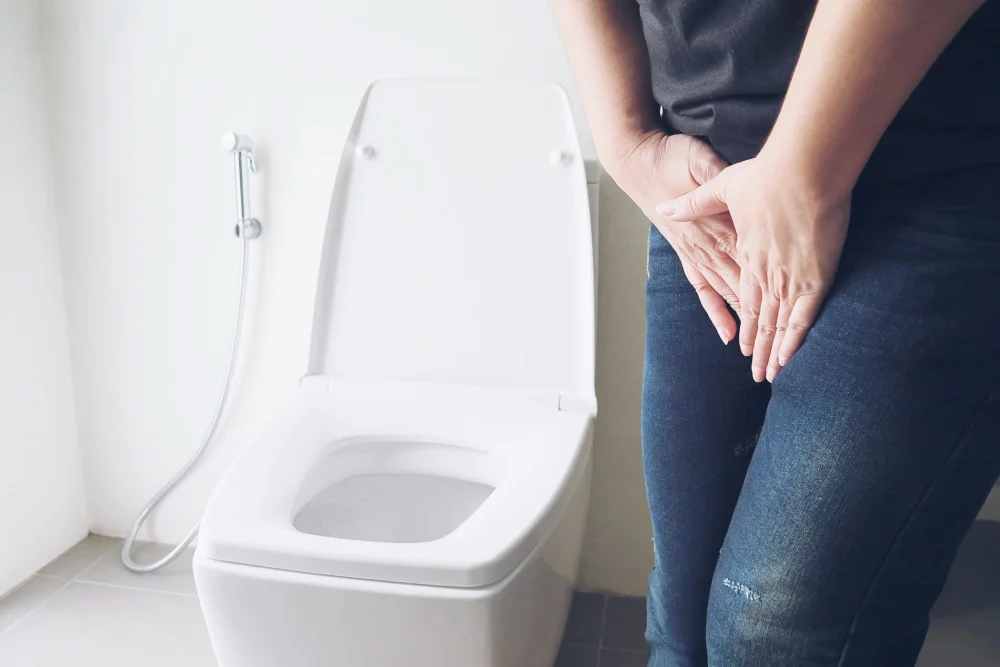Nocturia, or frequent urination at night, is a common health problem among women and can be caused by a variety of factors. This condition involves waking up at least twice during the night to urinate, can disrupt your sleep and affect your quality of life. Despite various medical interventions being available, some women may prefer home remedies as a first-line approach.
In this article, we will discuss some effective herbal remedies for frequent urination at night in females, backed by scientific research and traditional wisdom.
Understanding Frequent Urination at Night
Before we dive into natural remedies for frequent urination, it is essential to understand about the causes and symptom of nocturia in females.
Causes
Some common causes of these symptoms are: (1, 2, 3)
- Urinary tract infection (UTI): Nighttime urination, along with a burning sensation while urinating and pain in the lower abdomen, can be symptoms of a urinary tract infection caused by bacteria.
- Overactive bladder: This condition causes a sudden urge to urinate, which can be difficult to control, leading to nocturia.
- Pregnancy: During pregnancy, the growing uterus puts pressure on the bladder, leading to increased urination.
- Aging: As women age, the bladder muscles weaken, making it harder to hold urine, leading to more nighttime urination.
- Diabetes: When blood sugar levels are high, the kidneys may produce more urine than usual, resulting in nocturia .
- Bladder or kidney stones: Stones in the bladder or kidney can cause pain and nocturia.
- Interstitial cystitis: This is a chronic condition that causes pain and pressure in the bladder and overactive bladder.
- Medications: Some medications, such as diuretics, can increase urine production and lead to nocturia .
Symptoms
If you are experiencing frequent urination at night, you may also notice other symptoms such as a burning sensation while urinating, pain in the lower abdomen, or an urgent need to urinate. (4, 5)
- A sudden, strong urge to urinate.
- A burning sensation or pain during urination.
- Pain or discomfort in the lower abdomen or back.
- Cloudy or foul-smelling urine.
- Pain or discomfort in the lower abdomen or back.
- Fatigue or irritability due to disrupted sleep.
- Waking up multiple times during the night to urinate.
- Difficulty falling back to sleep after waking up to urinate.
- Needing to urinate frequently during the day as well.
Top 10 Herbal Remedies for Nighttime Urination in Women
Here are 10 herbal remedies for frequent urination in females:
1. Cranberry
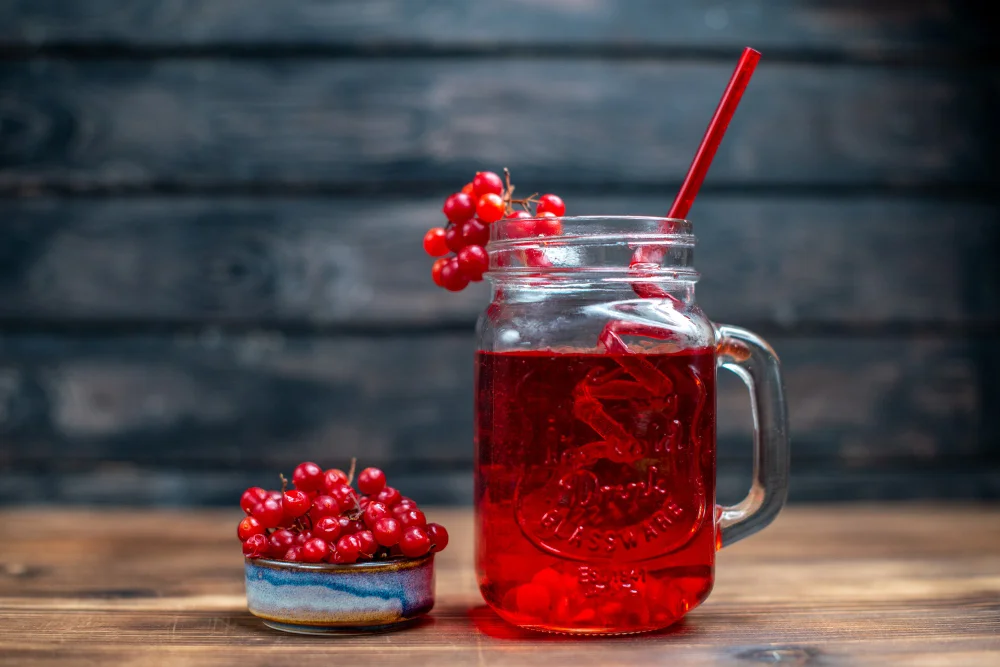
Cranberry is a herbal remedy that is often used to prevent UTIs, which can cause nighttime urination in women. It contains compounds called proanthocyanidins that prevent bacteria from attaching to the bladder and urinary tract.
One study published in the National Center for Biotechnology Information (NCBI) database found that cranberry reduced urinary frequency and improved quality of life in women with overactive bladder. (6)
However, it is important to note that while cranberry may help prevent UTIs, it may not necessarily treat frequent urination caused by other underlying conditions.
How to use
Here are some ways to use cranberries for nighttime urination in women:
- Cranberry juice: Drinking cranberry juice is one of the most popular ways to use cranberries for nighttime urination. It is believed that cranberry juice can help prevent the growth of bacteria in the urinary tract, which can cause nocturia.
- Fresh cranberries: Eating fresh cranberries or incorporating them into your diet can help prevent urinary tract infections and reduce the symptoms of nocturia in female.
-
Cranberry tea: Cranberry tea is another way to use cranberries for overactive bladder. You can make cranberry tea by steeping dried or fresh cranberries in hot water for several minutes. Drinking cranberry tea regularly can help reduce inflammation in the urinary tract and relieve symptoms of nocturia.
Dose
There is no specific dose of cranberry recommended for treating nocturia. The general recommended daily dosage of cranberry for preventing UTIs is 8-16 ounces (236.6 to 473.2 grams) of unsweetened cranberry juice.
Side Effects
Cranberry is generally safe for consumption, but potential side effects may include upset stomach, diarrhea, and allergic reactions. (7)
It may also interact with certain medications, such as blood thinners and medications for diabetes. Pregnant and breastfeeding women should avoid using Cranberry.
Before using cranberry for treating nocturia or any other health concern, it’s important to consult with your healthcare provider.
2. Horsetail

Horsetail is a plant that has been used for medicinal purposes for centuries. It contains compounds called flavonoids and saponins, which have anti-inflammatory properties. (8)
A study published in the National Center for Biotechnology Information (NCBI) database found that horsetail extract improved urinary symptoms in women with overactive bladder. (9)
How to use
If you suffer from nocturia, you may find relief by drinking horsetail tea. Here are the steps to prepare Horsetail tea for treating nocturia.
Instructions
- Boil water in a pot or kettle.
- Place 1-2 teaspoons of dried horsetail in a tea strainer or infuser.
- Pour the hot water over the horsetail and let it steep for 5-10 minutes.
- Remove the tea strainer or infuser and discard the horsetail.
- You can add honey or lemon to the tea for flavor, if desired.
Dose
You can consume 1-2 teaspoons of dried horsetail per day for four week.
Side Effects
Horsetail is generally safe for consumption, but potential side effects may include upset stomach, headache, fatigue, and skin rash. Horsetail may also be a diuretic. Herbs like these may actually increase trips to the bathroom, as well as your urges to go. (8)
It may also interact with certain medications, such as diuretics and blood thinners. Pregnant and breastfeeding women should avoid using Horsetail
Before using Horsetail for treating nocturia or any other health concern, it’s important to consult with your healthcare provider.
3. Buchu leave
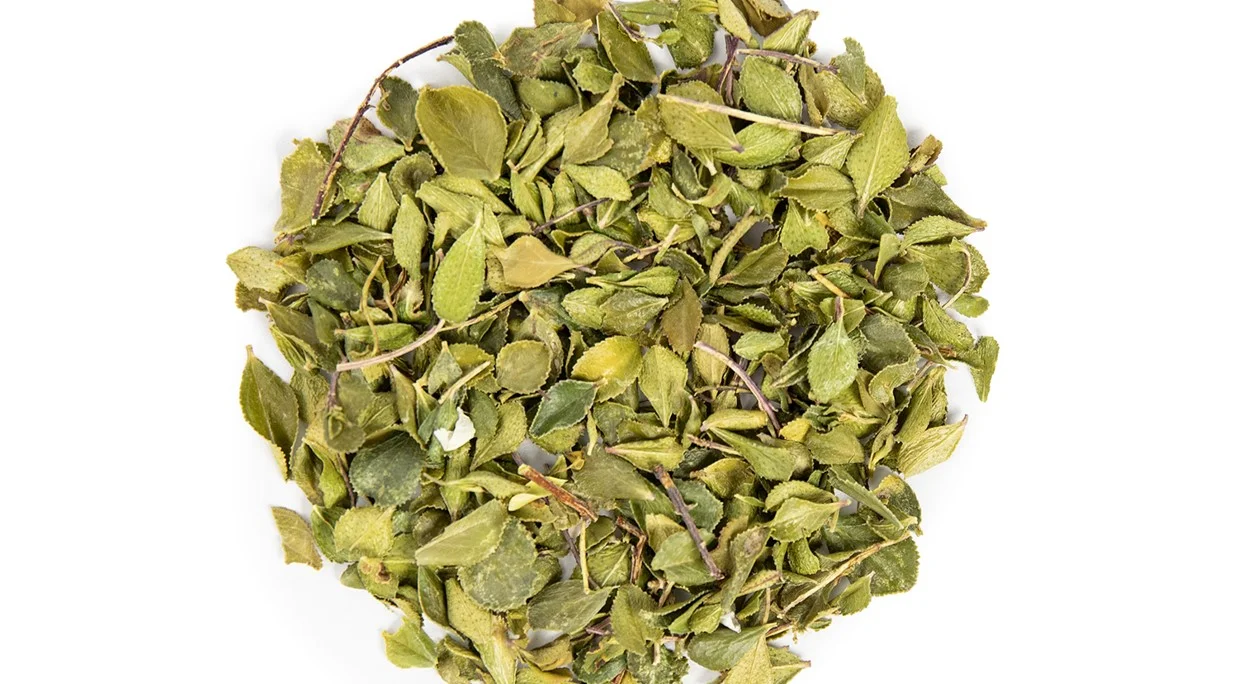
People have been using Buchu as a traditional herbal remedy for centuries to treat various health conditions, such as urinary tract infections, inflammation, and kidney problems.
It is believed to have anti-inflammatory property, which may make it useful in treating frequent urination.
A study published in the National Center for Biotechnology Information (NCBI) database found that Buchu extract improved urinary symptoms in women with overactive bladder. (10)
How to use
If you experience this condition, drinking Buchu tea may provide relief. Here are the steps to prepare Buchu tea for treating nocturia.
Ingredients:
- 1-2 teaspoons of dried Buchu leaves
- 1 cup of hot water
- Honey or lemon (optional)
Instructions:
- Boil water in a tea kettle or a pot.
- Measure out 1-2 teaspoons of dried Buchu leaves and put them in a tea strainer or a tea infuser.
- Place the tea strainer or infuser in a cup.
- Pour the hot water over the Buchu leaves and let it steep for 10-15 minutes.
- Remove the tea strainer or infuser and discard the leaves.
- If desired, add honey or lemon for taste.
- Drink the Buchu tea once a day.
Dose
If you are suffering from nocturia, try starting with 1-2 grams of dried leaves or 5-10 milliliters of buchu tincture per day for upto two weeks.
Side Effects
Buchu is generally safe for consumption, but potential side effects may include upset stomach, headache, dizziness, and allergic reactions.It may also interact with certain medications, such as diuretics and blood thinners. Pregnant and breastfeeding women should avoid using Buchu. (11)
Before using Buchu for treating nocturia or any other health concern, it’s important to consult with your healthcare provider.
4. Cornsilk (Zea mays)
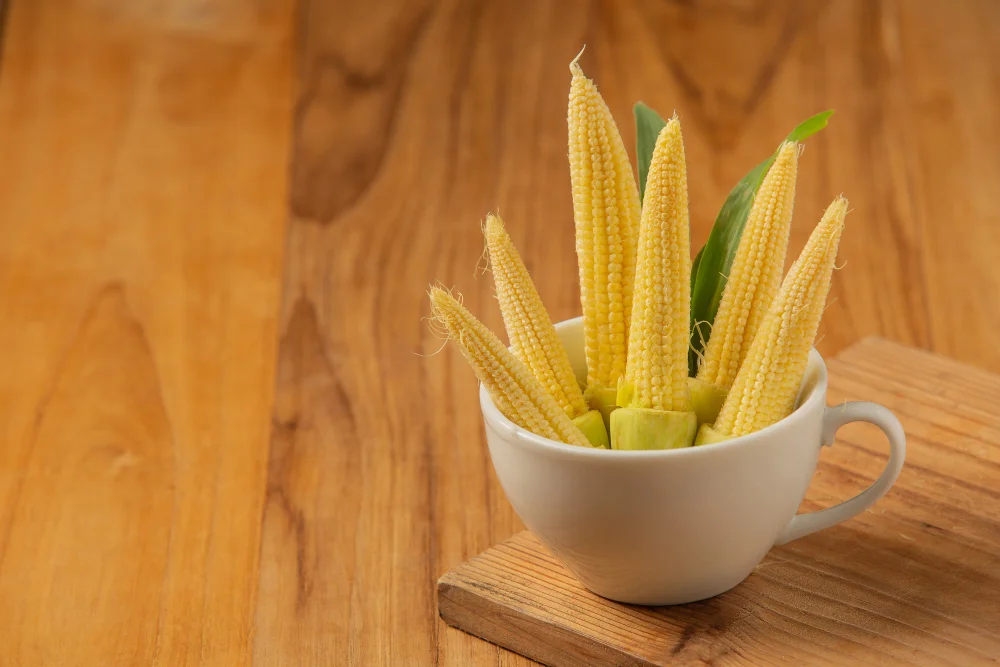
Cornsilk is the silky threads that grow on the ears of corn, and it has a long history of use as a natural remedy for urinary problems.
Corn silk works as an anti-inflammatory agent for urinary tract that may be beneficial for urinary tract health.
One study published in the National Center for Biotechnology Information (NCBI) database found that cornsilk improved overall urinary symptoms, including frequency and urgency, and improved urinary flow. (12)
How to use
If you suffer from nocturia, you may find relief by drinking Cornsilk tea. Here’s how to make Corn Silk Tea to treat nocturia:
Instructions
- Take dry or fresh Corn silk.
- Mix them in water.
- Let it boil for 5-10 minutes and leave it for a few minutes.
- This will turn into a brown-hued caramel-like liquid.
- Strain and you may have it both cold or warm.
- You can add lime juice or honey if you want to change its flavor.
- Have it twice a day or as directed by the physician.
Dose
You can start with one cup of corn silk tea per day and gradually increase the dosage to up to three cups per day.
Side Effects
Cornsilk is generally safe for consumption, but potential side effects may include upset stomach, headache, dizziness, and allergic reactions. It may also interact with certain medications, such as diuretics and blood thinners. Pregnant and breastfeeding women should avoid using Cornsilk. (13)
Before using Cornsilk for treating nocturia or any other health concern, it’s important to consult with your healthcare provider.
5. Uva Ursi
Uva ursi, also known as bearberry, is an herbal remedy that has traditionally been used to treat a variety of urinary tract disorders, including urinary tract infections, cystitis, and frequent urination.
It contains antibacterial compounds called arbutin and hydroquinone, which can prevent UTIs and reduce bladder spasms that create the urge to go.
A study published in the National Center for Biotechnology Information (NCBI) data base found that uva ursi was effective in treating urinary tract infections caused by E. coli bacteria. (14)
How to use
If you suffer from the condition of nocturia, consuming Uva Ursi tea might help alleviate the symptoms.
To make Uva Ursi Tea to treat nighttime urination in women, follow these steps:
Ingredients:
- 1-2 teaspoons of dried Uva Ursi leaves
- 1 cup of hot water
- Honey or lemon (optional)
Instructions
- Boil water in a tea kettle or a pot.
- Measure out 1-2 teaspoons of dried Uva Ursi leaves and put them in a tea strainer or a tea infuser.
- Place the tea strainer or infuser in a cup.
- Pour the hot water over the Uva Ursi leaves and let it steep for 10-15 minutes.
- Remove the tea strainer or infuser and discard the leaves.
- If desired, add honey or lemon for taste.
- Enjoy your Uva Ursi tea!
Dose
For nocturia, try starting with half 1-2 grams of dried uva ursi leaves per day for upto two weeks.
Side Effects
Uva Ursi is generally safe for consumption, but potential side effects may include upset stomach, liver damage, kidney damage, allergic reactions, and interactions with medications. (15)
6. Fenugreek seeds
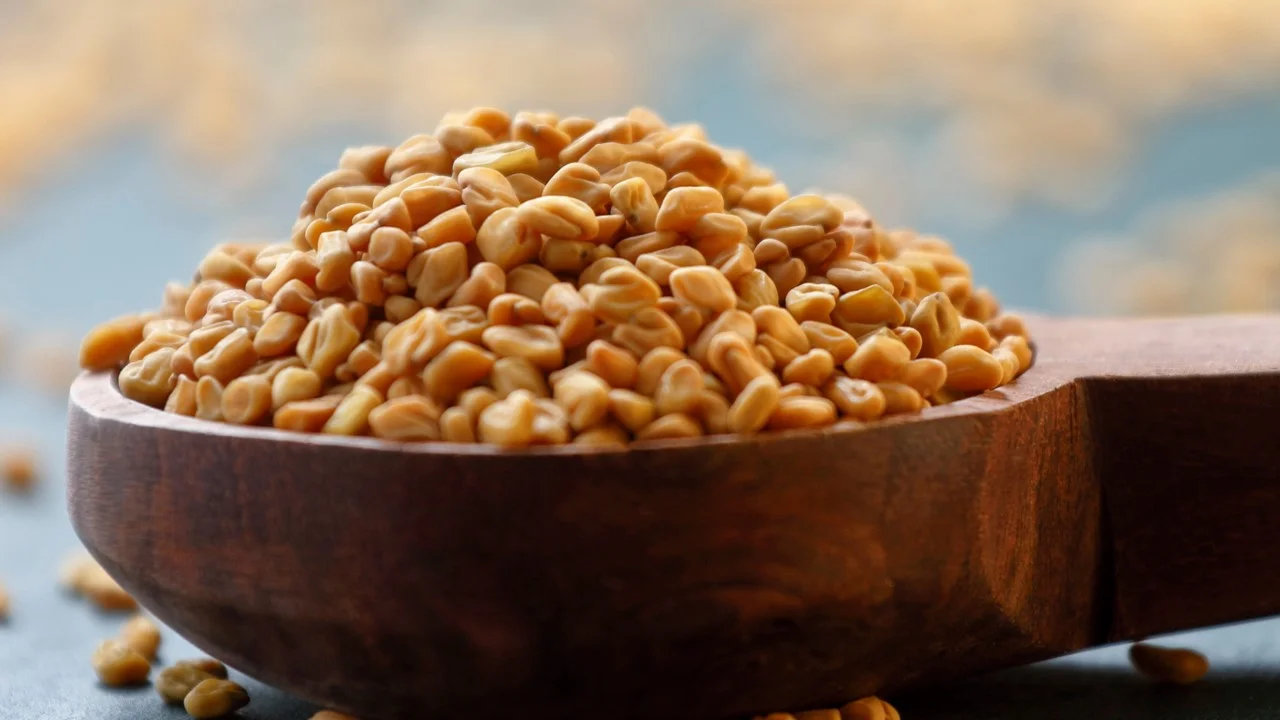
Fenugreek seeds are a natural remedy that can help alleviate frequent urination (or overreact bladder).
They are high in antioxidants that protect against oxidative damage in the urinary tract and bladder, reducing the risk of urinary tract infections and other conditions that can cause nocturia.
Additionally, fenugreek seeds have anti-inflammatory properties that can also help reduce inflammation in the urinary tract, easing the need to urinate frequently.
One study published in the NCBI data base found that fenugreek seed extract was effective in reducing symptoms of urinary tract infections, including frequency, urgency, and pain or discomfort during urination. (16)
How to use
Incorporating fenugreek seeds into your diet as a tea or chew may provide relief for nighttime urination.
To make fenugreek tea follow these folloing steps-
Ingredients
- 1 teaspoon fenugreek seeds
- 1 cup water
Instructions
- Bring 1 cup of water to a boil in a small saucepan.
- Add 1 teaspoon of fenugreek seeds to the boiling water.
- Reduce the heat to low and let the mixture simmer for 5-10 minutes.
- Remove the saucepan from the heat and let the tea cool for a few minutes.
- Strain the tea through a fine mesh strainer to remove the seeds.
- Drink the fenugreek seed tea while it is still warm.
- You can drink fenugreek seed tea up to 2-3 times a day.
Dose
You can take half teaspoon thrice a day for treating nocturia for a period of up to four weeks.
Side Effects
It is important to note that Fenugreek seeds may have some side effects and interactions with certain medications.
7. Amla (Gooseberry)
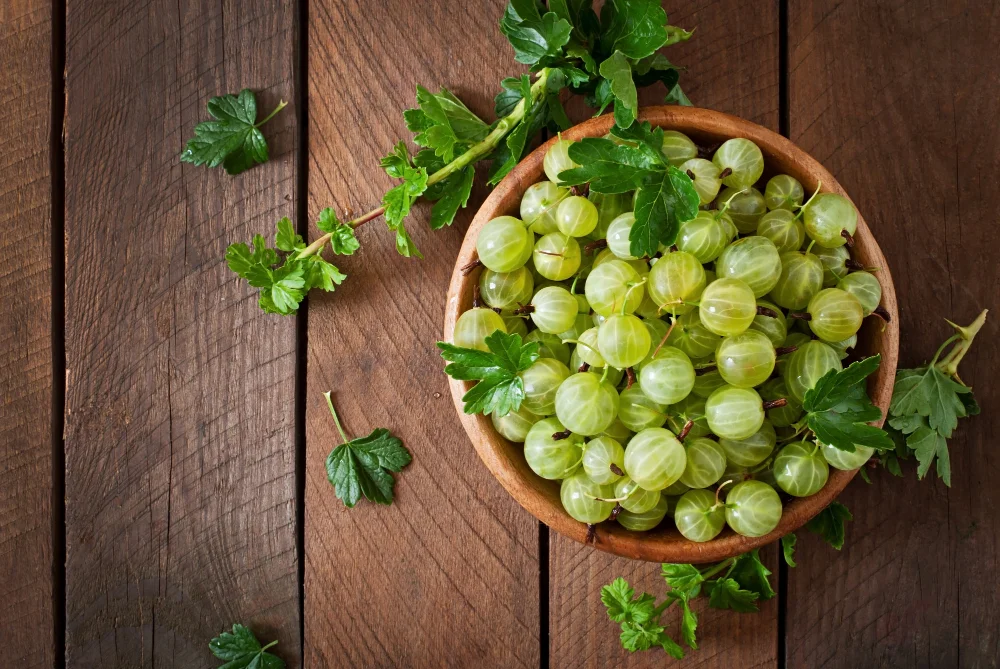
In Ayurvedic medicine, amla, also known as Indian gooseberry, has a long history of use for treating various health issues, including nocturia and UTI.
The compounds found in amla have anti-inflammatory properties that may aid in reducing inflammation in the urinary tract and other conditions that lead to frequent urination.
A study published in the NCBI in 2015 found that a combination of gooseberry extract and cranberry extract was effective in reducing the growth of bacteria that cause urinary tract infections. (17)
How to use
Amla can be consumed in different forms, such as fresh fruit, juice, or supplements.
Here are some methods:
- Fresh Amla fruit: You can eat fresh Amla fruit as a snack or include it in your meals. Amla can be quite sour, so you may prefer to sprinkle some salt or sugar on it to make it more palatable.
- Amla juice: Amla juice, which is available in health food stores or can be made at home by blending fresh Amla fruit with water and straining the mixture. You can drink Amla juice daily to help reduce nighttime urination.
- Amla tea: Amla tea can be made by steeping fresh or dried Amla fruit in hot water for a few minutes. You can add honey or lemon to the tea for taste. Drinking Amla tea once a day may help reduce nighttime urination.
Dose
There is no specific dose of raw amla recommended for treating nocturia, consuming one to two fresh amla fruits per day for a period of up to four weeks may be beneficial.
Side Effects
It is important to note that Amla may have some side effects and interactions with certain medications.
8. Pumpkin seed oil
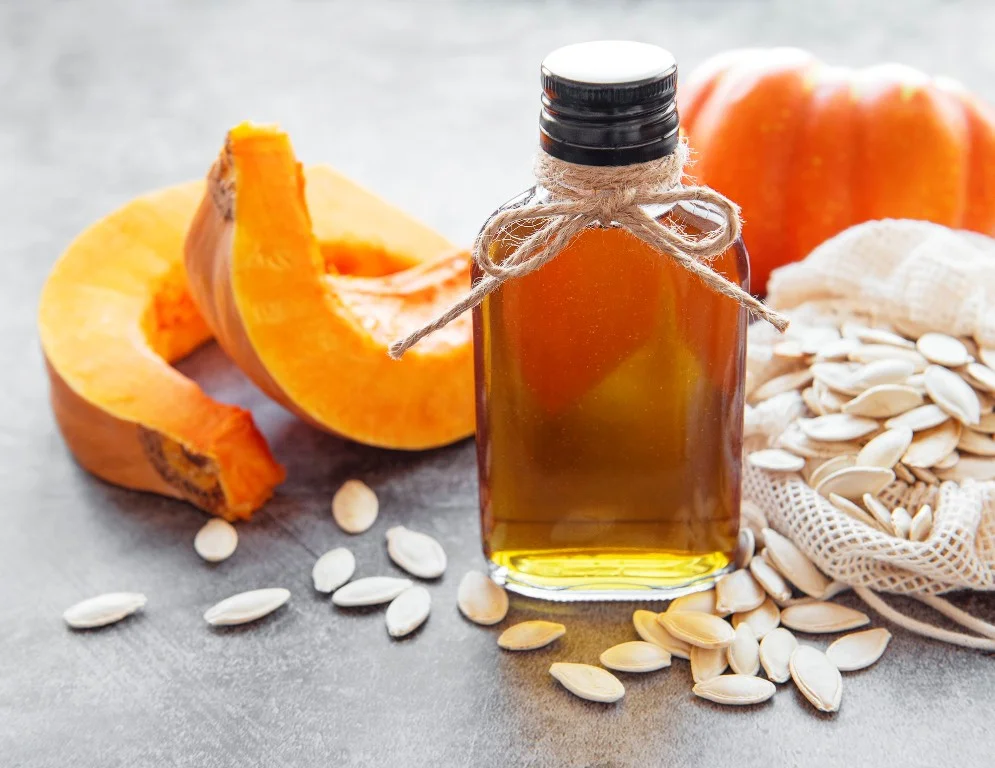
Pumpkin seed oil is a natural oil that is extracted from pumpkin seeds. It is believed to have various health benefits, including reducing the symptoms of frequent urination (overreact bladder).
Research has shown that pumpkin seed oil may have anti-inflammatory and antimicrobial properties, which may help to prevent and treat urinary tract infections.
One study published in the NCBI in 2014 found that pumpkin seed oil was effective in reducing symptoms of overactive bladder in women, including urgency, frequency, and nighttime urination. (18)
How to use
This can help relieve symptoms of urinary tract infections and other conditions that can cause overactive bladder.
There are various ways to use pumpkin seed oil to help reduce nocturia in women at night. Here are some methods:
- Ingesting the oil: Pumpkin seed oil can be ingested by adding it to salad dressings or other foods, or by taking it in supplement form. The recommended dosage for pumpkin seed oil supplements may vary depending on the brand, so it is important to follow the instructions on the label and consult with a healthcare provider before taking supplements.
- Massaging the lower abdomen: Massaging pumpkin seed oil into the lower abdomen may help reduce bladder irritation and reduce the need for frequent urination. To do this, warm a small amount of pumpkin seed oil between your hands and massage it into your lower abdomen in a circular motion.
- Adding it to tea: You can add a few drops of pumpkin seed oil to your tea, which can help reduce inflammation in the urinary tract and reduce the need for frequent urination.
Dose
For treating nocturia, you can consume 500 and 1,000 milligrams of pumpkin seed oil for a period of up to two weeks(19).
Side Effects
It is important to note that pumpkin seed oil may have some side effects and interactions with certain medications.
9. Cinnamon
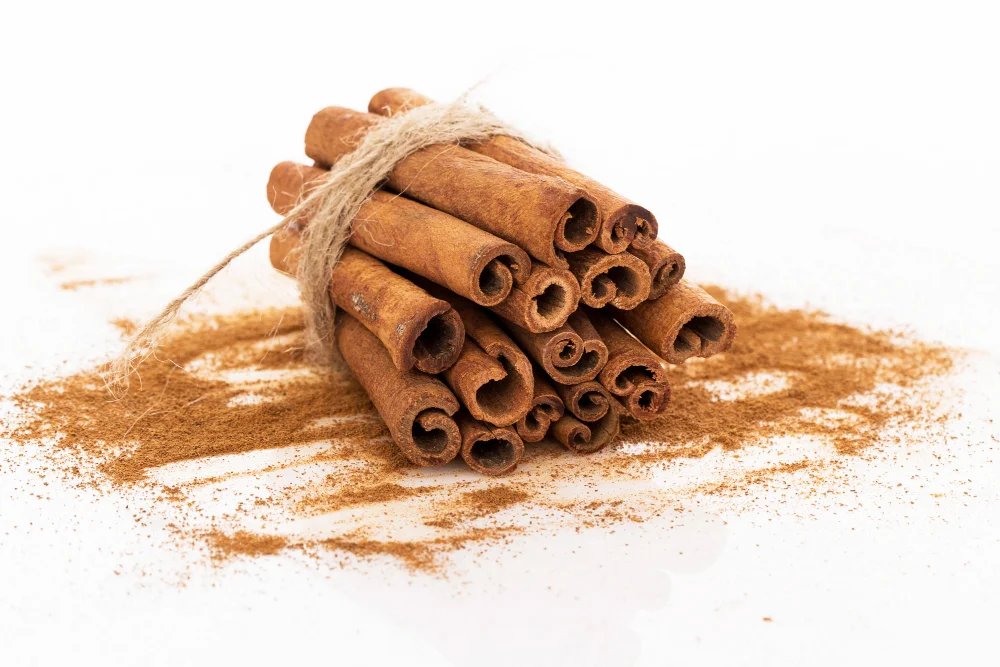
Cinnamon has some potential health benefits, including the ability to reduce nocturia in women.
The natural anti-inflammatory properties found in cinnamon can help to reduce inflammation in the bladder, which can alleviate symptoms of urinary tract infections and other conditions that lead to nocturia.
One study published in the NCBI database in 2020 found that cinnamon oil was effective in inhibiting the growth of bacteria that cause urinary tract infections. (20)
How to use
Cinnamon can be consumed in various ways to potentially help reduce frequent urination at night. Here are some ways to use cinnamon:
- Cinnamon tea: One way to use cinnamon is to make cinnamon tea. Simply add a cinnamon stick or a teaspoon of ground cinnamon to a cup of hot water, let it steep for several minutes, and then drink it. Cinnamon tea can be consumed once or twice a day.
- Cinnamon supplement: Cinnamon supplements are also available in capsule or tablet form. The recommended dosage may vary depending on the brand, so it is important to follow the instructions on the label and consult with a healthcare provider before taking supplements.
- Cinnamon in food: Cinnamon can also be added to food, such as oatmeal, yogurt, or smoothies, for a delicious and healthy flavor boost.
Dose
There is no specific recommended dose of cinnamon for treating nocturia in female, consuming 1-3 grams of cinnamon per day for a period of up to two weeks may be beneficial.
Side Effects
It is important to note that while cinnamon is generally safe for consumption, excessive intake may cause side effects such as mouth sores, digestive issues, and low blood sugar.
It is always recommended to consult with a healthcare provider before using cinnamon or any other natural remedy, especially if you have any underlying medical conditions or taking medication.
10. Licorice Root
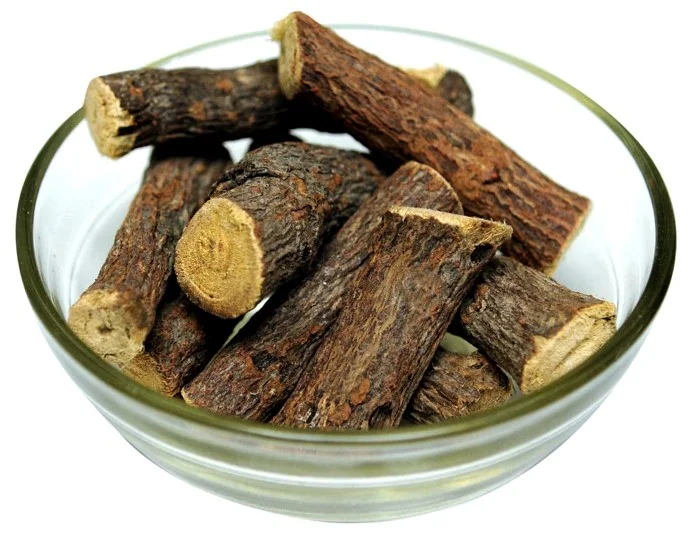
Licorice root has been used for centuries in traditional medicine to treat various health conditions, including reducing nocturia.
This natural herb is an anti-inflammatory that can reduce inflammation in the bladder. You can brew it as a tea or take it in supplement form.
One study published in the journal Phytotherapy Research in 2016 found that licorice root extract was effective in reducing symptoms of urinary tract infections in women, including pain and burning during urination. (21)
How to use
Licorice root can be consumed in various forms to potentially help reduce frequent urination at night. Here are some ways to use licorice root:
- Licorice root tea: Licorice root tea can be made by boiling one teaspoon of dried licorice root in a cup of water for 10 minutes. You can drink this tea once or twice a day.
- Licorice root in food: Licorice root can be used as a spice in cooking, such as adding it to soups, stews, or marinades.
Dose
The recommended dose of licorice root for treating nocturia is generally 1-3 grams per day for a period of up to four weeks.
Side Effects
It is important to note that while licorice root is generally safe for consumption, excessive intake may cause side effects such as high blood pressure, low potassium levels, and interactions with certain medications.
Before using licorice root for treating nocturia or any other health concern, it’s important to consult with your healthcare provider.
Home Remedies for Nocturia in females

1. Kegel exercises
Kegel exercises are a type of pelvic floor muscle training that can be helpful for women experiencing nocturia, or frequent nighttime urination.(22)
This exercises involve contracting and relaxing the muscles of the pelvic floor, which can help to strengthen them and improve bladder control. To perform Kegel exercises, follow these steps:
-
Identify the pelvic floor muscles by stopping urination midstream or by squeezing the muscles that prevent passing gas.
-
Once you have identified the muscles, sit or lie down comfortably and contract them for 5-10 seconds, then release for 5-10 seconds.
-
Repeat this process for 10-15 repetitions, 3-4 times a day.
Please note Kegel exercises may not be effective for everyone, and it’s important to consult with a healthcare professional for a proper diagnosis and treatment plan.
2. Double voiding
Double voiding is a technique that can be helpful for women who experience nocturia, which is the need to urinate frequently. (23)
The technique involves emptying the bladder as much as possible, then waiting a few moments and attempting to urinate again to release any remaining urine. By doing this, the bladder is completely emptied, which can reduce the frequency of nighttime urination.
3. Warm compress on the lower abdomen
Applying a warm compress on the lower abdomen can be helpful for women who experience nocturia, which is the need to urinate frequently. (24)
The warmth from the compress can help to relax the muscles in the bladder, which can reduce the urgency and frequency of urination. To use a warm compress, simply place a warm towel or heating pad on the lower abdomen for 10-15 minutes at a time.
Lifestyle changes for Nighttime urination
Making certain lifestyle changes can help manage and reduce frequent urination. Some of these changes include:
- Limiting fluid intake before bedtime and avoiding caffeine, alcohol, and carbonated beverages, which can irritate the bladder and increase urine production.
- Avoid diuretics, if you experience frequent urination, it is best to avoid diuretic medications as they can worsen your symptoms. It’s essential to talk to your doctor about your concerns and discuss alternative medications that are more suitable for your condition.
- Maintaining a healthy weight, as excess weight can put pressure on the bladder and increase urinary urgency.
- Avoiding constipation, as straining during bowel movements can put pressure on the bladder and worsen urinary symptoms.
- Managing stress levels, as stress can worsen urinary symptoms and trigger the urge to urinate.
- Seeing a healthcare provider to manage underlying medical conditions that may be contributing to frequent urination, such as diabetes or urinary tract infections.
By making these lifestyle changes, individuals can help manage and reduce the frequency of nighttime urination and other urinary symptoms.
Medical Interventions
Medical interventions for frequent urination in females may include: (25, 26)
- Medications for overactive bladder: There are several medications available that can help to reduce the symptoms of overactive bladder, such as urgency, frequency, and urge incontinence. These medications work by relaxing the bladder muscles and reducing the contractions that cause the urge to urinate.
- Bladder training: Bladder training is a behavioral therapy that involves gradually increasing the time between trips to the bathroom. This can help to train the bladder to hold more urine and reduce the frequency of urination.
- Surgery: In rare cases, surgery may be necessary to treat frequent urination in females. This may include procedures to repair bladder or urinary tract damage, or to remove obstructions that are causing the symptoms.
When to Seek Medical Advice
It’s important to talk to your doctor if you are experiencing the following symptoms:
- Urinating more than eight times per day or more than once per night
- Pain or discomfort during urination
- Blood in your urine
- Difficulty urinating
- Leakage or involuntary loss of urine
- Fever or chills
- Abdominal pain or back pain
- Unexplained weight loss
- Changes in the color or odor of your urine
- Fatigue or weakness
Your doctor can perform a physical exam, run tests, and discuss treatment options to help manage your symptoms and address any underlying medical conditions causing your frequent urination at night.
Read more- How to Stop Cough at Night: 12 Best Home Remedies
Learn more- CBD Oil: A Comprehensive Guide of Its Benefits, Risks, and Uses
See more- Quick and Easy Ways to Eliminate Bitter Taste in Your Mouth
Conclusion
Herbal remedies such as cranberry juice, pumpkin seed oil, amla, cinnamon, buchu, uva ursi, and licorice root have been suggested as potential treatments for reducing frequent urination in females. However, the scientific evidence for their effectiveness in treating nocturia is limited and further research is needed.
Some home remedies like kegel exercises, double voiding and warm compress can also help reduce the frequent urination at night. In addition, lifestyle changes include limiting caffeine and alcohol intake and avoiding diuretic substances can also help to decrease the frequency of urination during the night.
It’s always best to consult with your healthcare provider before trying any home remedies. If you are experiencing severe symptoms of nocturia, it is important to seek medical advice in order to determine the underlying cause and appropriate treatment options
Frequently Asked Questions (FAQs)
Q: How many times should you pee in a night
A: It is common for people to wake up once a night. Waking up more than 2-3 times to urinate may indicate an underlying medical condition. This can include urinary tract infection, prostate enlargement (in men), or overactive bladder.
Q: Is it safe to use herbal supplements for frequent urination at night in females?
A: While some herbal supplements may be effective in reducing urinary frequency, they can also have potential side effects or interact with other medications. It is important to carefully research the type of supplement and consult with a healthcare professional.
Q: How long does it take for natural remedies to work for frequent urination at night in females?
A: The effectiveness of natural remedies can vary depending on the individual. Some people may experience relief quickly, while others may need to use the remedy for a longer period to see significant improvement. Before trying any new natural remedy, it is always advisable to seek advice from a healthcare professional.
Q: Are there any risks or complications associated with frequent urination at night in females?
A: Frequent urination at night can disrupt sleep and affect quality of life, but in some cases, it may be a sign of an underlying medical condition that requires treatment. It is important to consult a healthcare provider if symptoms persist or worsen, or if there are other concerning symptoms such as pain or discomfort while urinating, blood in the urine, or fever.
Disclaimer : The above information is given purely from educational point of view. This information should not be used for diagnosis or treatment of any disease without professional medical advice. Never ignore professional medical advice in seeking treatment because of something you have read on the webpostguru site. Apart from this, before adding or removing anything in your diet, please consult a qualified doctor or dietitian. If you think you may have a medical emergency, immediately call your doctor.
